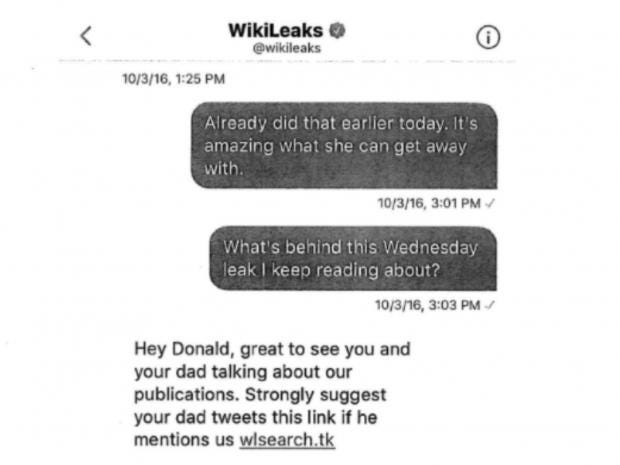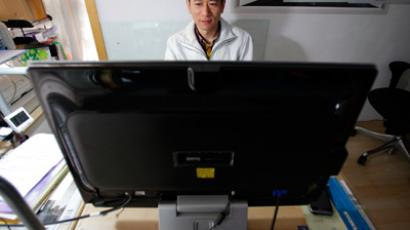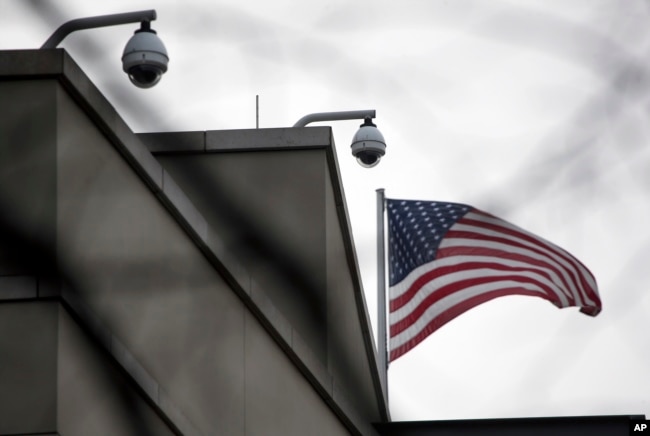CIA Director Mike Pompeo has called WikiLeaks a hostile agent bent on taking down America. Meanwhile, Julian Assange continues to inject himself and WikiLeaks into all political affairs in the United States, to what end has not been determined.
Meanwhile, Congress has all the direct message communications between someone at WikiLeaks and Donald Trump Jr. that was apparently leading the Twitter communications during the campaign season. Many of those communications from WikiLeaks had a response from Donald Jr.
Immediately after this became public, Julian Assange took to twitter to push back.
He posted on Twitter the following:
I cannot confirm the alleged DM’s from @DonaldJTrumpJr to @wikileaks. @wikileaks does not keep such records and the Atlantic’s presentation is edited and clearly does not have the full context. However, even those published by the Atlantic show that: 1/
WikiLeaks loves its pending publications and ignores those who ask for details. Trump Jr. was rebuffed just like Cambridge Analytica. In both cases WikiLeaks had publicly teased the publications. Thousands of people asked about them. 2/
WikiLeaks can be very effective at convincing even high profile people that it is their interest to promote links to its publications. 3/
WikiLeaks has such chutzpah that it allegedly tried to convince Trump Jr to leak his father’s tax returns & his own “Russian lawyer meeting” emails (he did). WikiLeaks appears to beguile some people into transparency by convincing them that it is in their interest. 4/

He also asked to be the U.S. ambassador to Australia…sheesh. Anyway….Assange was referring to the Atlantic article about those communications of which Congressional committees have copies provided by his lawyer. Here is that summary:
Just before the stroke of midnight on September 20, 2016, at the height of last year’s presidential election, the WikiLeaks Twitter account sent a private direct message to Donald Trump Jr., the Republican nominee’s oldest son and campaign surrogate. “A PAC run anti-Trump site putintrump.org is about to launch,” WikiLeaks wrote. “The PAC is a recycled pro-Iraq war PAC. We have guessed the password. It is ‘putintrump.’ See ‘About’ for who is behind it. Any comments?” (The site, which has since become a joint project with Mother Jones, was founded by Rob Glaser, a tech entrepreneur, and was funded by Progress for USA Political Action Committee.)
The next morning, about 12 hours later, Trump Jr. responded to WikiLeaks. “Off the record I don’t know who that is, but I’ll ask around,” he wrote on September 21, 2016. “Thanks.”
The messages, obtained by The Atlantic, were also turned over by Trump Jr.’s lawyers to congressional investigators. They are part of a long—and largely one-sided—correspondence between WikiLeaks and the president’s son that continued until at least July 2017. The messages show WikiLeaks, a radical transparency organization that the American intelligence community believes was chosen by the Russian government to disseminate the information it had hacked, actively soliciting Trump Jr.’s cooperation. WikiLeaks made a series of increasingly bold requests, including asking for Trump’s tax returns, urging the Trump campaign on Election Day to reject the results of the election as rigged, and requesting that the president-elect tell Australia to appoint Julian Assange ambassador to the United States.
“Over the last several months, we have worked cooperatively with each of the committees and have voluntarily turned over thousands of documents in response to their requests,” said Alan Futerfas, an attorney for Donald Trump Jr. “Putting aside the question as to why or by whom such documents, provided to Congress under promises of confidentiality, have been selectively leaked, we can say with confidence that we have no concerns about these documents and any questions raised about them have been easily answered in the appropriate forum.” WikiLeaks did not respond to requests for comment.
The messages were turned over to Congress as part of that body’s various ongoing investigations into Russian meddling in the 2016 presidential campaign. American intelligence services have accused the Kremlin of engaging in a deliberate effort to boost President Donald Trump’s chances while bringing down his Democratic rival, Hillary Clinton. That effort—and the president’s response to it—has spawned multiple congressional investigations, and a special counsel inquiry that has led to the indictment of Trump’s former campaign chair, Paul Manafort, for financial crimes.
It’s not clear what investigators will make of the correspondence, which represents a small portion of the thousands of documents Donald Trump Jr.’s lawyer says he turned over to them. The stakes for the Trump family, however, are high. Trump Jr.’s June 2016 meeting with Natalia Veselnitskaya, a Russian lawyer with connections to Russia’s powerful prosecutor general, is already reportedly a subject of interest in Special Counsel Robert Mueller’s investigation, as is the White House statement defending him. (Trump Jr. was emailed an offer of “information that would incriminate Hillary,” and responded in part, “If it’s what you say I love it.”) The messages exchanged with WikiLeaks add a second instance in which Trump Jr. appears eager to obtain damaging information about Hillary Clinton, despite its provenance.
Though Trump Jr. mostly ignored the frequent messages from WikiLeaks, he at times appears to have acted on its requests. When WikiLeaks first reached out to Trump Jr. about putintrump.org, for instance, Trump Jr. followed up on his promise to “ask around.” According to a source familiar with the congressional investigations into Russian interference with the 2016 campaign, who requested anonymity because the investigation is ongoing, on the same day that Trump Jr. received the first message from WikiLeaks, he emailed other senior officials with the Trump campaign, including Steve Bannon, Kellyanne Conway, Brad Parscale, and Trump son-in-law Jared Kushner, telling them WikiLeaks had made contact. Kushner then forwarded the email to campaign communications staffer Hope Hicks. At no point during the 10-month correspondence does Trump Jr. rebuff WikiLeaks, which had published stolen documents and was already observed to be releasing information that benefited Russian interests.
WikiLeaks played a pivotal role in the presidential campaign. In July 2016, on the first day of the Democratic National Convention, WikiLeaks released emails stolen from the Democratic National Committee’s servers that spring. The emails showed DNC officials denigrating Bernie Sanders, renewing tensions on the eve of Clinton’s acceptance of the nomination. On October 7, less than an hour after the Washington Post released the Access Hollywood tape, in which Trump bragged about sexually assaulting women, Wikileaks released emails that hackers had pilfered from the personal email account of Clinton’s campaign manager John Podesta. On October 3, 2016, WikiLeaks wrote again. “Hiya, it’d be great if you guys could comment on/push this story,” WikiLeaks suggested, attaching a quote from then-Democratic nominee Hillary Clinton about wanting to “just drone” WikiLeaks founder, Julian Assange.
“Already did that earlier today,” Trump Jr. responded an hour-and-a-half later. “It’s amazing what she can get away with.”
Two minutes later, Trump Jr. wrote again, asking, “What’s behind this Wednesday leak I keep reading about?” The day before, Roger Stone, an informal advisor to Donald Trump, had tweeted, “Wednesday@HillaryClinton is done. #WikiLeaks.”
WikiLeaks didn’t respond to that message, but on October 12, 2016, the account again messaged Trump Jr. “Hey Donald, great to see you and your dad talking about our publications,” WikiLeaks wrote. (At a rally on October 10, Donald Trump had proclaimed, “I love WikiLeaks!”)
“Strongly suggest your dad tweets this link if he mentions us,” WikiLeaks went on, pointing Trump Jr. to the link wlsearch.tk, which it said would help Trump’s followers dig through the trove of stolen documents and find stories. “There’s many great stories the press are missing and we’re sure some of your follows [sic] will find it,” WikiLeaks went on. “Btw we just released Podesta Emails Part 4.”
Trump Jr. did not respond to this message. But just 15 minutes after it was sent, as The Wall Street Journal’s Byron Tau pointed out, Donald Trump himself tweeted, “Very little pick-up by the dishonest media of incredible information provided by WikiLeaks. So dishonest! Rigged system!”
Two days later, on October 14, 2016, Trump Jr. tweeted out the link WikiLeaks had provided him. “For those who have the time to read about all the corruption and hypocrisy all the @wikileaks emails are right here: http://wlsearch.tk/,” he wrote.
After this point, Trump Jr. ceased to respond to WikiLeaks’s direct messages, but WikiLeaks escalated its requests.
“Hey Don. We have an unusual idea,” WikiLeaks wrote on October 21, 2016. “Leak us one or more of your father’s tax returns.” WikiLeaks then laid out three reasons why this would benefit both the Trumps and WikiLeaks. One, The New York Times had already published a fragment of Trump’s tax returns on October 1; two, the rest could come out any time “through the most biased source (e.g. NYT/MSNBC).”
It is the third reason, though, WikiLeaks wrote, that “is the real kicker.” “If we publish them it will dramatically improve the perception of our impartiality,” WikiLeaks explained. “That means that the vast amount of stuff that we are publishing on Clinton will have much higher impact, because it won’t be perceived as coming from a ‘pro-Trump’ ‘pro-Russia’ source.” It then provided an email address and link where the Trump campaign could send the tax returns, and adds, “The same for any other negative stuff (documents, recordings) that you think has a decent chance of coming out. Let us put it out.”
Trump Jr. did not respond to this message.
WikiLeaks didn’t write again until Election Day, November 8, 2016. “Hi Don if your father ‘loses’ we think it is much more interesting if he DOES NOT conceed [sic] and spends time CHALLENGING the media and other types of rigging that occurred—as he has implied that he might do,” WikiLeaks wrote at 6:35pm, when the idea that Clinton would win was still the prevailing conventional wisdom. (As late as 7:00pm that night, FiveThirtyEight, a trusted prognosticator of the election, gave Clinton a 71 percent chance of winning the presidency.) WikiLeaks insisted that contesting the election results would be good for Trump’s rumored plans to start a media network should he lose the presidency. “The discussion can be transformative as it exposes media corruption, primary corruption, PAC corruption, etc.,” WikiLeaks wrote.
Shortly after midnight that day, when it was clear that Trump had beaten all expectations and won the presidency, WikiLeaks sent him a simple message: “Wow.”
Trump Jr. did not respond to these messages either, but WikiLeaks was undeterred. “Hi Don. Hope you’re doing well!” WikiLeaks wrote on December 16 to Trump Jr., who was by then the son of the president-elect. “In relation to Mr. Assange: Obama/Clinton placed pressure on Sweden, UK and Australia (his home country) to illicitly go after Mr. Assange. It would be real easy and helpful for your dad to suggest that Australia appoint Assange ambassador to [Washington,] DC.”
WikiLeaks even imagined how Trump might put it: “‘That’s a real smart tough guy and the most famous australian [sic] you have!’ or something similar,” WikiLeaks wrote. “They won’t do it but it will send the right signals to Australia, UK + Sweden to start following the law and stop bending it to ingratiate themselves with the Clintons.” (On December 7, Assange, proclaiming his innocence, had released his testimony in front of London investigators looking into accusations that he had committed alleged sexual assault.)
In the winter and spring, WikiLeaks went largely silent, only occasionally sending Trump Jr. links. But on July 11, 2017, three days after The New York Times broke the story about Trump Jr.’s June 2016 meeting with Natalia Veselnitskaya, a Russian lawyer with connections to Russia’s powerful prosecutor general, WikiLeaks got in touch again.
“Hi Don. Sorry to hear about your problems,” WikiLeaks wrote. “We have an idea that may help a little. We are VERY interested in confidentially obtaining and publishing a copy of the email(s) cited in the New York Times today,” citing a reference in the paper to emails Trump Jr had exchanged with Rob Goldstone, a publicist who had helped set up the meeting. “We think this is strongly in your interest,” WikiLeaks went on. It then reprised many of the same arguments it made in trying to convince Trump Jr. to turn over his father’s tax returns, including the argument that Trump’s enemies in the press were using the emails to spin an unfavorable narrative of the meeting. “Us publishing not only deprives them of this ability but is beautifully confounding.”
The message was sent at 9:29 am on July 11. Trump Jr. did not respond, but just hours later, he posted the emails himself, on his own Twitter feed.









